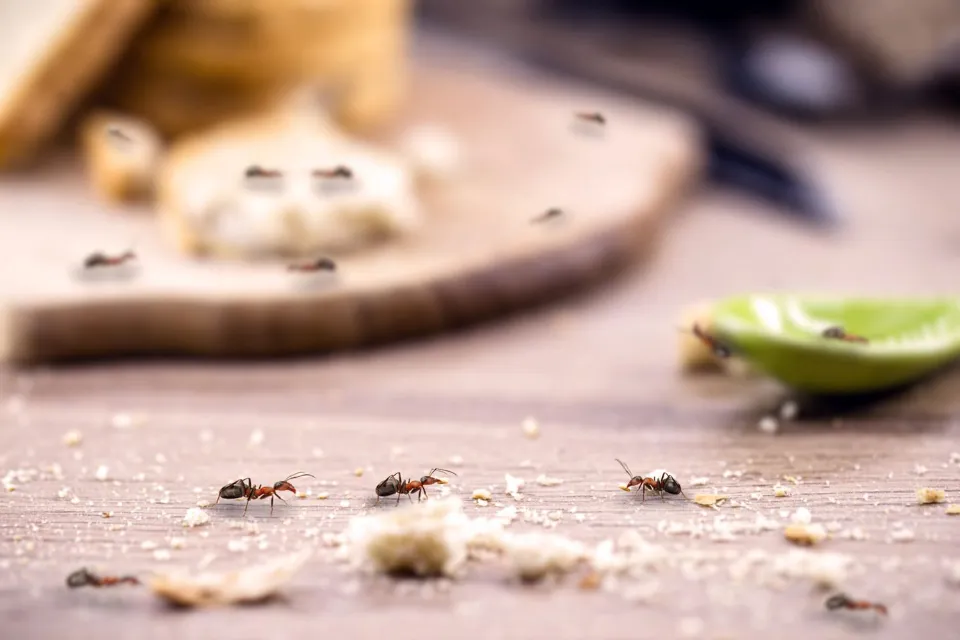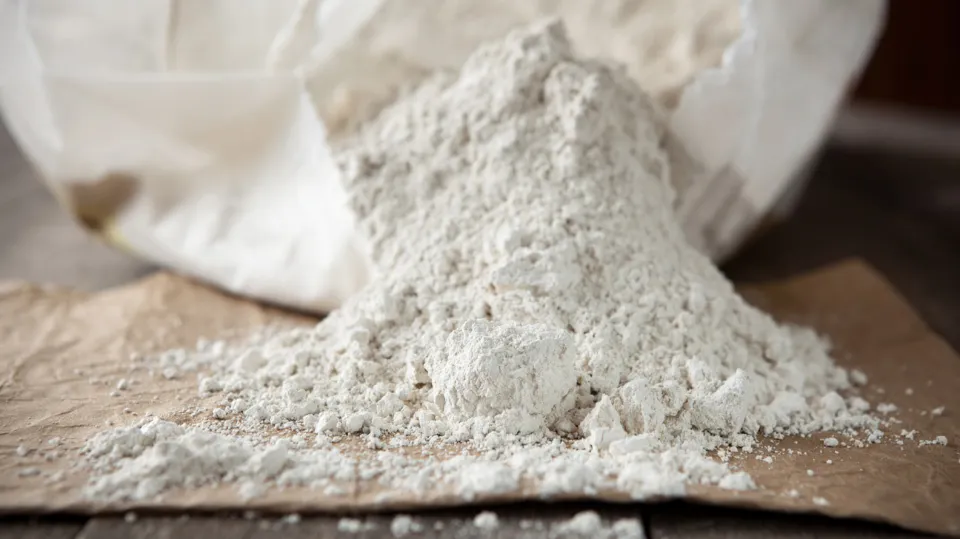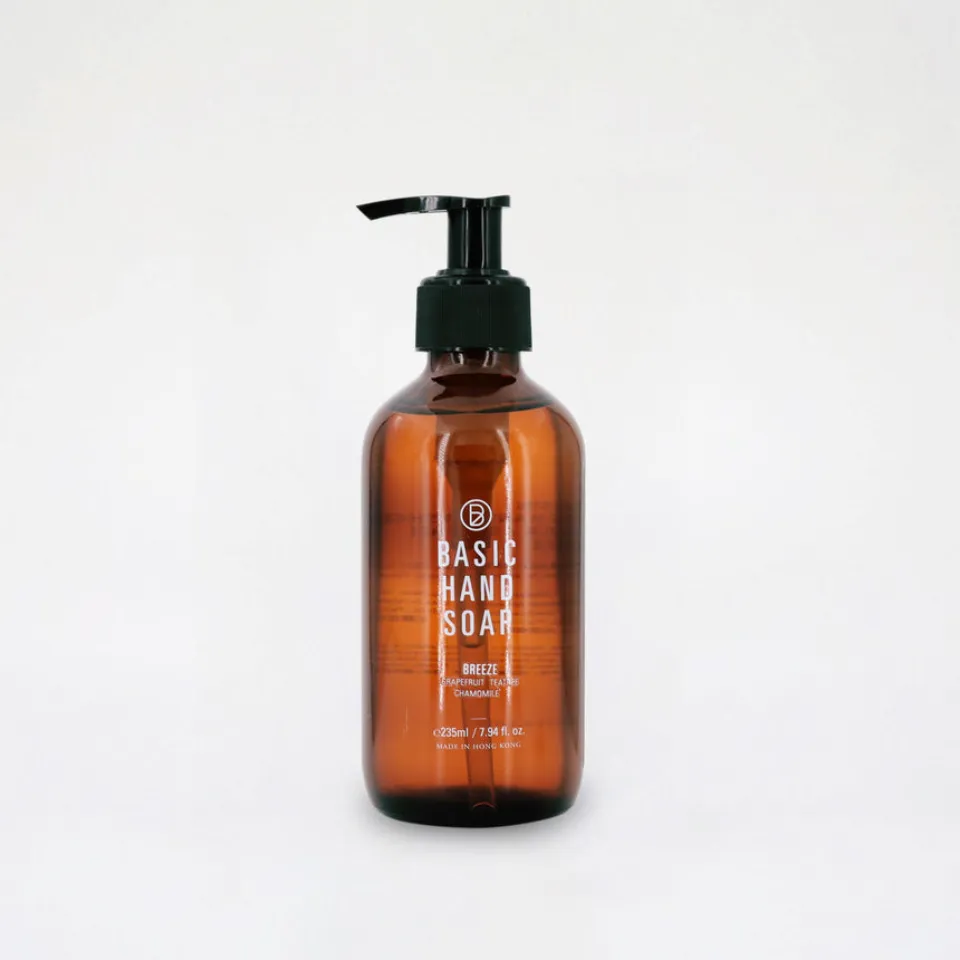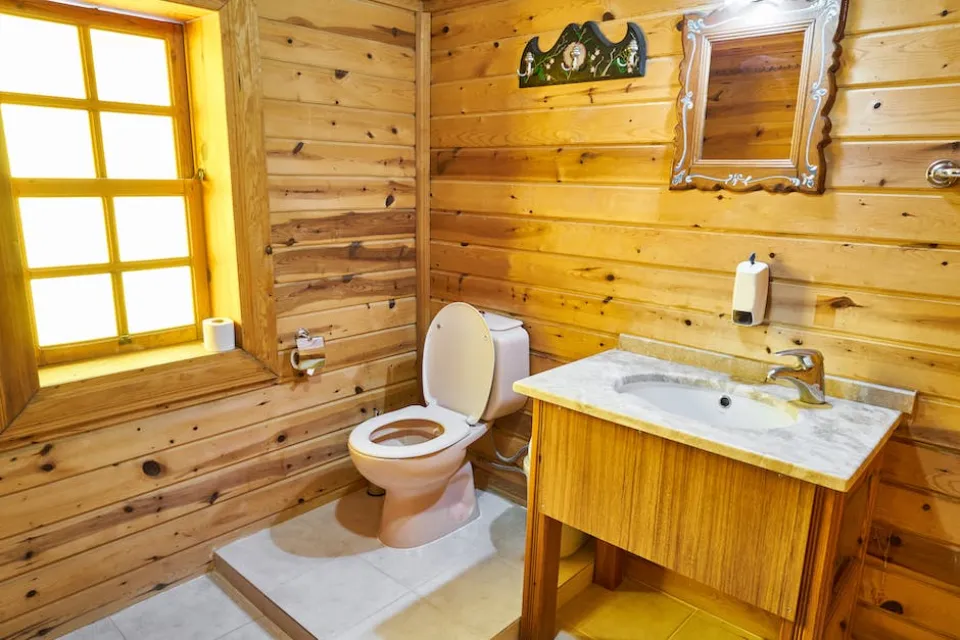The worst part is that ants frequently invade kitchens where they steal food stealthily, like a child returning from college. So, how to get rid of ants in the kitchen?
To begin with, you are supposed to find and kill the ant colony, eliminate their food source, beware of moisture, clean your kitchen, utilize naturally deterring scents, block their entry points, and not use spray repellants or poisons.
In the post, we will also give you a list of natural and homemade products that you can use.
How to Get Rid of Ants in the Kitchen?
Although getting rid of ants in your kitchen may seem like a difficult task, using household repellents along with powerful ant baits can drive the insects out of your house permanently.
Find and Kill the Ant Colony
Recall the scent trails that allowed ants to march in a line? To follow the ants’ path through your home, take advantage of those. Make sure you follow the trail in both directions to determine their origin and destination.
Since more ants from the colony will replace those you remove, simply killing the ants you see won’t accomplish much. This colony could be nesting under floors, behind walls, in cabinets or appliances, or in door or window frames. You can directly treat the nest with insecticide to eradicate the infestation at its source if you can actually locate the nest. Use a non-repellent pesticide to prevent the colony from moving to another location if you try to repel the ants at this point.
Ants frequently build their nests in places that are difficult to find. As a result, bait stations can be used to eliminate the colony if you are unable to reach the nest’s actual source. With the scent of food, bait traps draw ants and convince them to carry a slow-acting poison back to the nest. Place these bait traps close to the ant trails that lead back to the nest.
The surface the ants are walking on can also be treated with bait gels. But keep in mind not to use bait and then try to spray the ants you see with an on-contact ant killer. To return the insecticide to the nest, you need those ants. Give the bait time to do its job.
Eliminate Their Food Source
Clearing away food leftovers and spills is the first thing you should do because prevention is always better than cure. The majority of the time, ants establish a camp in your home to forage for food. So make sure to store food in containers and bags with tight-fitting lids.
Starchy and sweet foods like honey, cornmeal, and sugar are typically what draw them in. You’ll want to ensure there are no smears, splatters, and spills of such food items anywhere in your kitchen. Clean up food crumbs from garbage cans and the area around your appliances. In general, the cleaner your kitchen is kept, the less likely it is that ants will move in.

Beware of Moisture
Remember that ants enter your house because they believe they are finding gold in the form of shelter, food, and water.
Ants don’t require a lot of water to survive in terms of getting their H2O. In fact, even a damp dish towel or mat in the kitchen is enough to keep them going.
If you have a fan in your kitchen, put your dish towel and mat close by to help them dry out faster, advises Warberg Block, or toss them in the dryer for a few minutes.
Also, identify and repair any leaky pipes that may be luring ants in. To be extra safe, put a cup over the drain in your kitchen sink to prevent them from coming up or loitering nearby.
Be sure to eliminate standing water, especially around houseplants.
In relation to indoor plants, if you’re a plant parent, make routine pest inspections.
Aphids, another type of pest, can be just as crazy about your houseplants as you are. Clean the leaves frequently by misting them with a solution made of water and dish soap. This will clear the residue and prevent ants from making our beloved houseplants, theirs.
Clean Your Kitchen
Ants can eat as much as they want in your kitchen. Taking away their food source is the first step in getting rid of ants in the kitchen.
You need to sanitize your kitchen and ensure you keep on top of it after you have dealt with your intruders.

Utilize Naturally Deterring Scents
Like many other insects, ants use their sense of smell to determine where their next meal will be. Certain scents will work just as well as harsh and dangerous poisonous sprays and traps.
This works by disrupting their olfactory (scent) receptors with a scent they find powerfully repelling.
Ants won’t come near you if you smell cinnamon, lemon, or peppermint oil. Spray some diluted oils around your kitchen, or sprinkle some cinnamon where you’ve noticed ants gathering.
The domestic spice acts as a dermal irritant, which will keep them away.
Or, consider placing a pouch of Stay Away Ants & Cockroaches on your kitchen counters. These all plant-based deterrent pouches harness a research-backed blend of plant fibers and essential oils, such as peppermint oil, lemongrass, thyme oil, to keep ants and cockroaches away from treated areas, guaranteed, without poisoning or killing them.
Block Their Entry Points
By blocking their entryways, you can also keep ants out of your kitchen. While it can be impossible to seal every nook and cranny, try as much as possible to seal cracks, crevices, and holes in walls, radiators, and near floorboards. The secret is to follow their trail to find out their entry point. Additionally, look around door frames, screens, and window frames. If your home is a standalone structure (vs. a home in a condo building), you can inspect the exterior of your foundation, where you should be able to eventually find a trail of ants moving in and out.
Do Not Use Spray Repellants Or Poisons
Avoid using insect repellent on ants.
When the queen’s workers are in danger, she will spit her colony. This will make your ant problem worse. Instead, you need to find the source of ants. The last resort, but occasionally a necessary one, is to soak an ant nest.
Drench the ant nest with an insecticide spray if you need quick results.
Natural and Homemade Products You Can Use
To prevent sugar ants from entering your kitchen, a variety of products are available. There’s a chance that you already have some of these items in your kitchen. Maybe you’re even using them as home remedies for other issues.
Diatomaceous Earth
This is the go-to option for killing different pests, and it works effectively for ants, too. A type of silica known as “diatomaceous earth” contains the preserved remains of aquatic organisms. Simply spray it on the area surrounding the ant colonies and let it sit for a few days. Because it absorbs their oils, it dries out the ants, killing them.

Boiling Water
The best way to get rid of ants in the kitchen is to use boiling water. Identify ant holes in your kitchen and near your home and pour boiling water into them. The boiling water will kill as many ants as it can, even though it won’t eliminate the entire colony.
Pepper
Almost everyone has some black pepper in their cabinets. Actually, it enhances food and works well as a pest repellent.
One easy way to get rid of kitchen ants is to sprinkle pepper in areas where ants are likely to be spotted. Ants detest pepper’s potent aroma. This is a great option because you can use it liberally everywhere and it’s safe for kids and pets.

Vinegar
Additionally, ants do not like the strong smell of vinegar. The scent of vinegar can deter ants from entering your home, and can cover up the smell of the pheromone trails, stopping more of a colony’s ants from finding their way to the kitchen. In a spray bottle, mix vinegar and water in a ratio of 1:1. Spray any ants you see, along with their trail into the home and around the kitchen.

Hand Soap
Additionally useful for ant control in your kitchen is this common household item. Use the soap to make soapy water, which you can sprinkle around your kitchen. Anthrax pheromones, which are used by ants to follow trails, are neutralized by soapy water. They are unable to communicate with one another without the scent and disperse in various locations.

Boric Acid
It’s been demonstrated that using this method will completely eradicate all ants in three weeks, making it yet another successful ant-killing method. An example of a poison is boric acid, which destroys ants’ stomachs and exoskeletons to cause their death. Keep in mind to keep it out of the reach of children and animals, use gloves when handling it, and clean up and throw away any dead ants in the kitchen drain.
Borax
A really efficient way to eliminate kitchen ants for good is to create a borax mixture that can kill the entire ant colony, preventing them from coming back.
When you kill ants on the surface, they can still come back because you’re not targeting their colony, which can produce more ants to replace those that died.
Because the ants are not immediately killed by the borax mixture, they take some back to their colony to share with their family.
It may take the poison up to 48 hours to begin to have an effect. This scenario kills the entire colony since all of the ants, including those in their egg forms, take part in consuming the borax mixture.
To create the borax mixture:
- Combine 1 part sugar, 1 part borax, and 2 parts water.
- To increase water retention and stop the water from quickly evaporating, soak cotton balls in the sugar-borax solution.
- Place the cotton balls soaked in borax on an ant trail and watch as the poison takes hold.
Lemon and Orange
Lemon and orange can get rid of all of your ant issues, which might be difficult to believe.
Place a few drops of lemon or orange juice where ants frequently enter your kitchen.
Alternatively, you can squeeze some lemon or orange juice into a mop and use it to clean the kitchen floor instead of leaving the peels of these fruits in the ant’s usual path. Ants won’t like the citrusy smell and bitter taste that will be produced on the floor as a result of this.
Essential Oils
You can experiment with various essential oils, including those from cinnamon leaf, tea tree, peppermint, neem, lemon, and eucalyptus. You can use any of these oils alone or in combination with water to get rid of the tiny ants in the kitchen. All of these oils work as ant repellents. They have organic chemicals that irritate ants and drive them from your house.
Why Am I Getting Ants in My Kitchen?
Ants could appear unexpectedly in your kitchen for a number of reasons. One of the most common causes for a sudden ant infestation is the presence of a food source. If ants find food in your home, they will alert the other ants in their colony by using pheromones as a chemical trail for the other ants to follow. This explains why it may seem like the number of ants in your kitchen has grown dramatically in a matter of a few days.
Despite the fact that ants will consume almost anything, they favor sweeter foods like honey, sugar, fruit juice, and syrup. Therefore, they may be even more likely to remain if they discover these kinds of food in your home. Water is necessary for an ant colony’s survival as well, so if the ants discover a steady supply in your kitchen, they may be more likely to settle there and proliferate. Aside from spills on the floors, ants can also find water in damp and humid areas of the house, such as by doors and windows, around the refrigerator, or beneath a sink.
Due to their propensity for hibernating and going dormant during the winter, ants are less common during this time. Once the weather warms up, ants may suddenly reappear in your home as they emerge from hibernation. Infestations of ants may also be influenced by the climate. Ants prefer moist environments, so when the summer weather gets hot and dry, they may start to enter homes in search of better conditions.
After a period of heavy rain, you might also find more ants in your kitchen. They will search for a dry place to live if the rains cause their nest to flood.
Keep Your Kitchen Ant-free
You don’t need to struggle with identifying effective ways on how to get rid of ants in the kitchen when you can use home remedies. While most ants are pretty much harmless, they wreak havoc in your kitchen and can ruin the foundations of your home.
In order to determine where an ant colony has been established, observe the trails and movements of any ants you see in your kitchen. To kill or get rid of them, use the home remedies mentioned above. To avoid the issue recurring, make sure the queen is also dead. Then, you can caulk up any openings and cracks in your walls, windows, and doors. Once you’ve finished all of that, make sure to clean up your house to get rid of clutter so you can better control where ants can hide.

How Do I Stop Ants from Coming Back?
The last thing you’ll want after battling an ant infestation is for the ants to come back into your house. For advice on avoiding further infestations, see the list below.
- Routinely wash kitchen countertops, floors, and cabinets with cleaners suited for the specific material.
- Never leave uncovered food or drink on counters or floors, including pet food, to ward off ants! Food leftovers should always be kept in airtight containers.
- Standing water is an invitation to ants to drink up, so wipe up water and other liquid spills as they occur and don’t leave pots and pans soaking in the sink for more than a few hours at a time.
- Keep lids on garbage cansshut tightly when not in use, and take the trash out every 1 to 3 days.
- By covering previous ant entry points with natural ant repellents like 2 tablespoons of peppermint oil and a quart of water, equal parts apple cider vinegar and water, or a dusting of cinnamon powder, you can make your kitchen inhospitable to ants.
- Regularly check the kitchen for plumbing or appliance leaks, and fix the leak as well as any indoor structures that have been harmed by moisture to stop the growth of indoor ant nests.
- Trim any tree branches that touch the siding of your home; if the tree contains an ant nest, the branches could serve as a pathway for ants to get inside.
Read about How to Get Rid of Ants in the Bedroom?
Summary: How to Get Rid of Ants in the Kitchen?
Ants are among the most prevalent household pests, and because they enjoy sweet, syrupy foods, when they come inside, they frequently go to the kitchen. We go over how to get rid of ants in the kitchen and keep them out once they’re gone.
To begin with, you are supposed to find and kill the ant colony, eliminate their food source, beware of moisture, clean your kitchen, utilize naturally deterring scents, block their entry points, and not use spray repellants or poisons.
I appreciate your reading.



